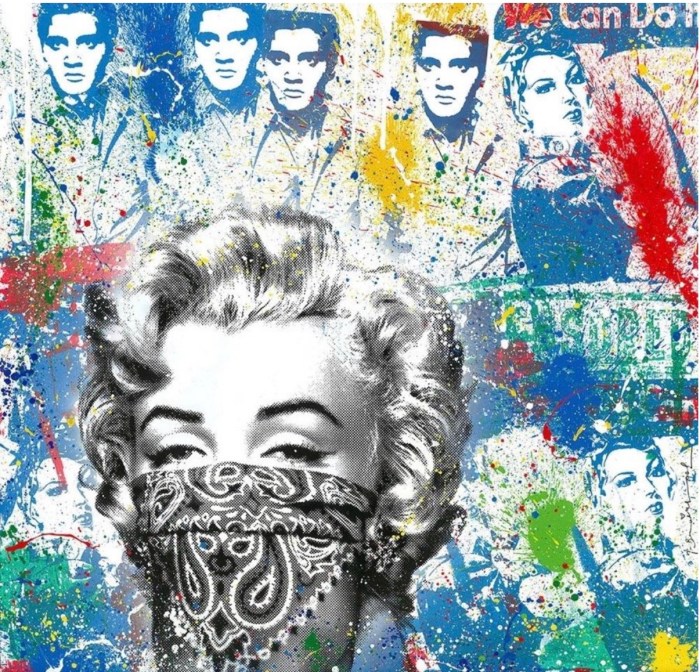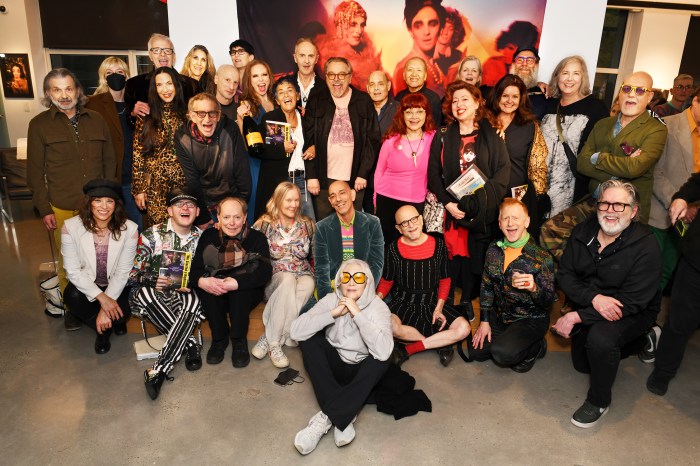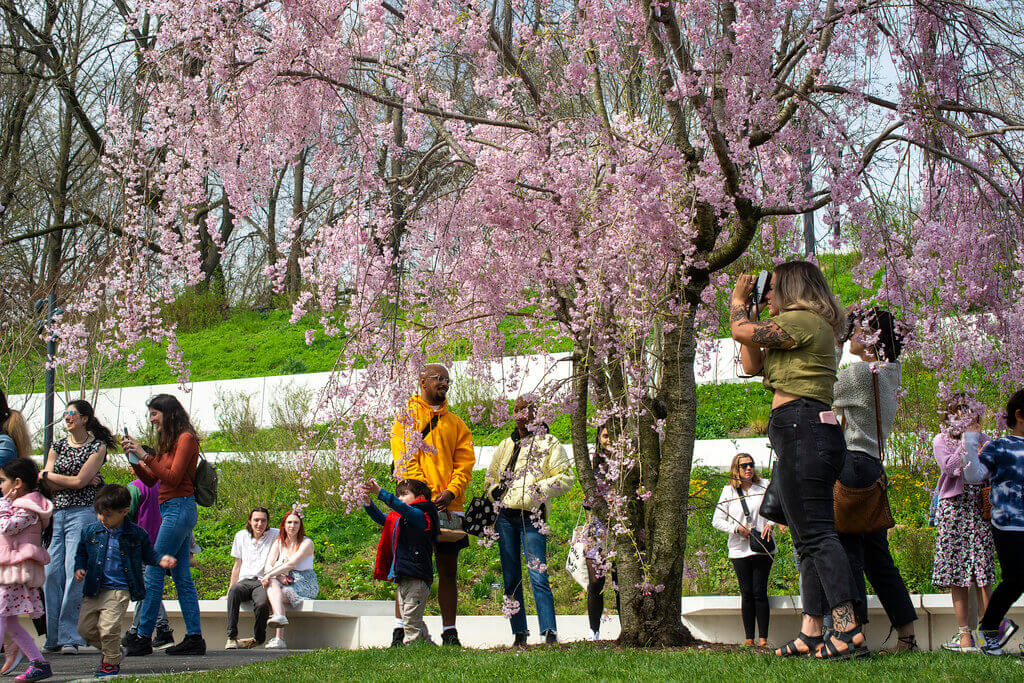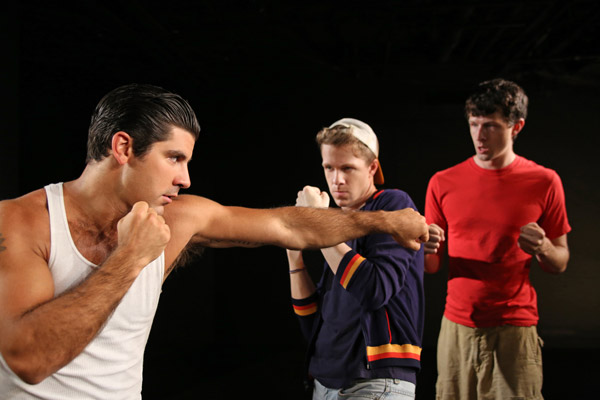
For some, FringeNYC is an off-campus lab experiment
BY MARTIN DENTON (of nytheatre.com) | At the 2001 New York International Fringe Festival, you could have seen the original production of the cult camp musical “Debbie Does Dallas,” one of Clay McLeod Chapman’s early versions of “The Pumpkin Pie Show” or Mike Daisey in his first NYC solo show, “21 Dog Years.” But I think my most vivid memory of that fifth FringeNYC was a piece called “Awaiting Repair in the Eternal Hootenanny,” which was performed by a remarkable and intrepid cast of eight in Henry Street Settlement’s Experimental Theater Space.
THEATER
FringeNYC:
THE NEW YORK INTERNATIONAL FRINGE FESTIVAL
August 9-25
185 shows, at 20 Downtown venues
Fringe Central: 27 Second Ave. (btw. 1st & 2nd Sts.), open 12-8pm daily
Tickets: $15 in advance,
$18 at the door
Call 866-468-7619
Visit fringenyc.org
“Hootenanny” was not a show in any conventional sense. It was, resolutely, thrillingly, an experiment: the product of several months of workshops led by director Julia Lee Barclay, whose objective was to “teach and discover new tools for the creation of a theatrical language based on ever-shifting reality fields, rather than a static interpretation of a given set of circumstances.” From my seat in the audience, it was (I wrote) an exciting adventure into theatrical creativity; a rare and thrilling glimpse of a process-in-process. Very much what a fringe festival is supposed to be about.
“Hootenanny” taught me many things, but none so important as the fact that the New York International Fringe Festival is not simply a playground for new and emerging indie theater artists (though of course it is that). FringeNYC is also a laboratory for serious theater creators from the world of academia — an off-campus place where they can put work on its feet and then share their ideas and discoveries with a likeminded group of artists. Barclay has since gone on to earn her Ph.D., doing work that was rooted in the experiments of that FringeNYC show a dozen years ago. She’s just one of hundreds of FringeNYC artists whose careers are based in colleges and universities.
As we head into the 17th annual edition of FringeNYC, I thought it might be fun to explore the festival from this angle, previewing some of the shows in this year’s festival that come from the academic milieu.
A FUTURE IMPERFECT, by William S.E. Coleman, imagines an oppressive government that regulates human contact. Coleman was a professor at Drake University in Des Moines, Iowa. The play is actually directed by a former student of his, Allison Moody. Coleman recently told Chelsea Now’s content partner, nytheatre.com, “Contemporary theatre veers between the Brecht-Artaud polarities; but some theatre artists are able to combine them into one coherent event. “A Future Imperfect” was designed to realize this aesthetic fusion by moving and entertaining audiences, stimulating thought and discussion about our world and the direction it’s heading.”
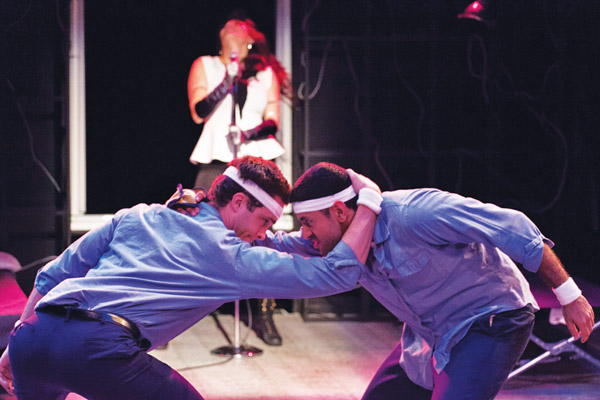
Factory drones, drunk guards and sexy anarchists collide, in UCSD student David Jacobi’s “Ex Machina.”
EX MACHINA comes to FringeNYC from the University of California at San Diego’s Wagner New Play Festival; both playwright David Jacobi and director Sarah Wansley are students in the MFA theater program there. Here’s the official blurb: “Two smartphone factory drones must learn to coexist while under threat from fascist anti-union politics, drunk guards and a sexy anarchist unfettered by the laws of physics.” Wansley talked to us a bit about the play’s themes: “The problem in this world isn’t the machine, it’s the people behind the machine. What happens when humans have started acting like machines?”
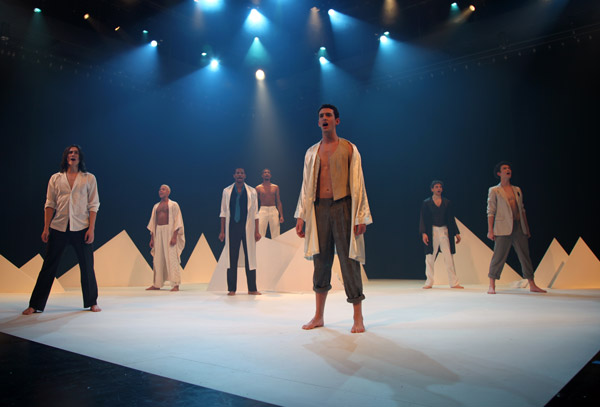
A collaborative effect, at Carnegie Mellon’s School of Drama: Michelle Sutherland led 23 others, to create “Gertrude Stein Saints.”
GERTRUDE STEIN SAINTS was developed at Carnegie Mellon University’s School of Drama — where 23 collaborators led by director Michelle Sutherland worked to adapt Gertrude Stein’s avant-garde jazz opera “Four Saints in Three Acts” for the 21st century. The music is drawn from exclusively American music genres such as rap, bluegrass, New Orleans jazz, soul, Motown, folk and gospel. Sutherland invokes Stein in her enthusiastic description of this work: “You look ridiculous if you dance. You look ridiculous if you don’t dance. So you might as well dance.”
INEXCUSABLE FANTASIES is, according to the FringeNYC program guide, about “Martha Stewart’s marzipan, motorcycles and Panasonic personal massagers…lesbian (in)visibility and the unmistakably erotic powers of Grandma’s Oil of Olay,” Intriguing, yes? It’s the brainchild of actor/playwright Susan McCully and director Eve Muson — both of whom teach at University of Maryland, Baltimore County. Previously seen in Baltimore and at the Prague Fringe Festival, “Inexcusable Fantasies” is the only show at FringeNYC, Muson promises, that features a bronzed Panabrator II Personal Massage Wand. (“The play isn’t especially vulgar but it’s thick with sexual innuendo.”)
LANDSCAPE WITH MISSING PERSON: A COMEDY ABOUT FINDING WHAT YOU DIDN’T KNOW YOU WERE LOOKING FOR is the hands-down winner of the Longest Title Award at this year’s FringeNYC. It’s by John Crutchfield, who has had a long career in academia and currently teaches writing at the Master’s program at Lenoir-Rhyne University in Hickory, North Carolina. In this new drama, a teenage railroad punk helps a strange middle-aged man search for his mysteriously vanished wife. Crutchfield will perform in this play, as he did in his 2009 FringeNYC solo play, “The Songs of Robert.” True story: when I asked Crutchfield if he would like to publish “The Songs of Robert” in my anthology “Plays and Playwrights 2010,” he told me that he had used my first anthology “Plays and Playwrights for the New Millennium” as a required text for a course he taught at Appalachia College years before. That book included three scripts from the earliest FringeNYC festivals — proof that the link between academia and the world of FringeNYC is palpable and enduring!
LIKE POETRY is by Kristian O’Hare, who teaches at Menlo College and Evergreen Valley College in Northern California. O’Hare cites as influences on his writing “Tennessee Williams, the makers of ‘50s educational films about hygiene and teen sexuality, Joe Orton, Arthur Russell, Suzan-Lori Parks, Ralph Eugene Meatyard, Rainer Werner Fassbinder, PJ Harvey, Larry Kramer, Nan Goldin and, obviously, Walt Whitman, who literally creeps into my play to offer guidance to a repressed young man.”
OCCUPY OLYMPUS: BASED ON ‘PLUTUS, GOD OF WEALTH’ is directed by George Drance, a theater professor at Fordham University, and features an original score by Elizabeth Swados. As the title suggests, the show puts a very contemporary spin on a 2,500-year-old comedy by Aristophanes. Drance is a longtime veteran of the indie/experimental theater scene in NYC, where he’s worked with collaborators as diverse as Ellen Stewart, Ping Chong and Dario D’Ambrosi — and has created many inventive works of physical theater with his company, Magis Theatre.
STRANGE RAIN is described as “a noir journey of conspiracy about a relentless rain and its link to the 1950s and a scientist building weather-control machines.” Its author is Lynda Crawford, who teaches theater at SUNY Empire State College in Greenwich Village (her show is running at the newly christened Lynn Redgrave Theater, just a mile or two to the east). Crawford told me recently that this play began as a dream. “The dream stayed with me,” she says, “and so I had to write it.”
Other shows in this year’s festival with academic credentials include “Down the Mountain and Across the Stream” by Wagner College teacher Jake Shore, “The Unfortunates” (whose author Aoise Stratford works at Cornell University) and “Very Bad Words” — written by Jacob Presson, a rising junior at Marymount Manhattan College (Jake’s older brother James won a 2010 FringeNYC award for directing a punk rock adaptation of Shakespeare’s “Richard III”).
I am sure I will discover more connections between FringeNYC and the academic world as the festival progresses, especially at the FringeU special event that my company, Indie Theater Now, is co-hosting (on Tuesday, August 13 at 6:30pm), featuring past FringeNYC participants and other academic voices advocating the use of contemporary dramatic literature in the classroom. The panel will include FringeNYC Producing Artistic Director Elena K. Holy, FringeNYC alumni/professors Omar Sangare, Edward Elefterion, David Dannenfelser, Joe Salvatore and yours truly. It’s moderated by Cate Cammarata of SUNY Stony Brook.
Coverage of FringeNYC is already underway at nytheatre.com (which I edit). Interviews with hundreds of artists participating in the festival are online now, and reviews of all 183 shows in FringeNYC will be published daily starting on August 9.










